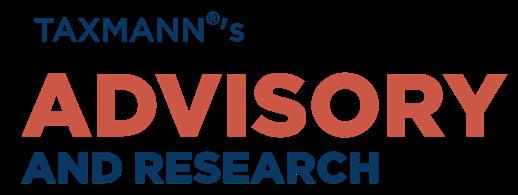





On 11 August 2025, the Lok Sabha passed the Taxation Laws (Amendment) Bill, 2025 [‘Amendment Bill’], which amends the Incometax Act, 1961 (ITA), and the Finance Act, 2025. The bill amends various provisions of the Act to allow tax benefits to the subscribers of the Unified Pension Scheme rolled out in 2025, and to correct errors in the Finance Act 2025. The changes made by the Amendment Bill are as follows:














[Section 10(12AA), Section 10(12AB), Section 80CCD]
The Central Government introduced the Unified Pension Scheme (UPS), effective from 01-04-2025 [Notification F. No. FX-1/3/2024 - PR., dated 24-01-2025], as an option under the National Pension System (NPS) for the Central Government employees covered under NPS, so that they may receive an assured payout after their retirement.
It is a ‘fund-based’ payout system which relies on the regular and timely accumulation and investment of applicable contributions (from both the employee and the employer (the Central Government)) for the grant of a monthly payout to the retiree.
To operationalise this framework, the Pension Fund Regulatory and Development Authority (PFRDA) had issued the PFRDA (Operationalisation of the Unified Pension Scheme under NPS) Regulations, 2025, on 19 March 2025.
To grant the tax benefit to the subscriber of UPS, the Amendment Bill makes the following amendments to the Income-tax Act 1961.
A new clause (12AA) has been added to Section 10 to provide an exemption for payments received from the National Pension System (NPS) Trust under the UPS. This clause provides that any amount received by a subscriber of the UPS, at the time of superannuation, voluntary retirement, or retirement under clause (j) of Rule 56 of the Fundamental Rules (where such retirement is not considered as a penalty under the Central Civil Services (Classification, Control and Appeal) Rules, 1965), will
be exempt from tax to the extent it does not exceed 60% of the individual corpus.
Further, a new clause (12AB) is added to Section 10 of ITA, which provides an exemption for any lump sum amount received on retirement. This exemption is allowed for the lump sum payment allowed to the central government employee on superannuation at the rate of 10% of monthly emoluments. The above exemption is available to an assessee who is a registered subscriber to UPS.
The Amendment Bill inserts a new sub-section (3A) under Section 80CCD to provide for the tax treatment of withdrawals from the UPS for Central Government employees.
It provides that any amount standing to the credit of a UPS subscriber, whether under sub-section (1) or (1B), including contributions eligible for deduction under Section 80CCD(1), (1B), or (2), along with any accrued income thereon, will be fully taxable in the year of receipt in the hands of assessee or his nominee. However, such withdrawal shall be subject to the exemption allowed under Section 10(12AA) and Section 10(12AB).
The amount will be taxable if it is received on account of superannuation, voluntary retirement, or retirement under clause (j) of Rule 56 of the Fundamental Rules [if such retirement is not considered a penalty under the Central Civil Services (Classification, Control and Appeal) Rules, 1965].
Further, a new sub-section (6) is inserted to Section 80CCD which clarifies that for the purpose of computing the taxable withdrawal under sub-section (3A), any amount transferred from an individual’s NPS corpus to the pool corpus on account of superannuation, voluntary retirement, or retirement under clause (j) of Rule 56 of the Fundamental Rules (where such retirement is not treated as a penalty under the Central Civil Services (Classification, Control and Appeal) Rules, 1965) shall not be considered as “amount received” by the assessee in that year.
2. Any proceedings for the block period commenced after the search shall stand abated
[Section 158BA]
The Finance (No. 2) Act 2024 reintroduced the block assessment scheme by substituting Chapter XIV-B (Sections 158B to 158BI) in cases where a search under Section 132 or a requisition under Section 132A has been made on or after 01-092024.
Section 158BA of this chapter provides a detailed framework for assessing total undisclosed income resulting from searches and requisitions. Section 158BA(2) provides that any pending assessment, reassessment, or recomputation for any
assessment year within the block period automatically abates (is discontinued) upon the initiation of a search or the making of a requisition. In other words, regular assessments for the block period shall abate. There will be one consolidated assessment for the block period. Until the block assessment is complete, no further assessment/reassessment proceeding shall take place regarding the period covered in the block. This ensures that all related assessment activities are consolidated under the block assessment process, avoiding duplication and ensuring a thorough review of all relevant periods.
The Amendment Bill amends section 158BA of the ITA to expand the scope of abatement. It provides that any proceeding for assessment, reassessment, or recomputation for which a notice has been issued during the period commencing from the date of search initiation (or requisition) and ending on the date of the block assessment order under Section 158BC(1)(c) shall also abate. This abatement occurs on the date such notice is issued. However, an exception is made for the assessment year in which the last search authorisation is executed.
Under the existing section, abatement is linked only to the pendency of proceedings as on the date of search/requisition. For example, a search takes place on 10 January 2025. On that date, the AY 2020–21 assessment is pending, so it shall abate. For AY 2021–22, assessment is not pending on the search date, as there may be a time limit still available with AO to issue the notice. Now, between 10 January 2025 and the date of the block assessment order, the AO still have the legal power to initiate a separate regular assessment for AY 2021–22 by issuing a notice. This might have caused duplication of work & conflicting results, and legal disputes over jurisdiction if AY 2021-22 falls in the block period. Thus, this amendment addresses this gap by stating that the pending proceedings shall abate even if they commence after the search date but before the block order is issued. 3. Expanding
[Section 16]
The Finance Act 2025 has revised the tax rates and slabs under the new tax regime of Section 115BAC for the Assessment Year 2026-27. It also increased the income threshold for claiming a tax rebate under Section 87A for resident individuals taxable under the new regime of Section 115BAC from Rs. 7 lakhs to Rs. 12 lakhs, and the maximum rebate amount has been raised from Rs. 25,000 to Rs. 60,000.
This results in zero tax liability for taxpayers having income up to Rs. 12 lakhs. In case of salaried taxpayers, this threshold limit is slightly higher as they can also claim the benefit of standard deduction under section 16(ia).
For every employee, the standard deduction is Rs. 50,000 or the amount of salary received, whichever is lower. However, this limit is increased to Rs. 75,000 in case the
employee’s income tax is computed under the new tax regime of Section 115BAC(1A) (ii). This is provided by the Proviso to Section 16(ia).
Section 115BAC provides an alternate tax regime to an individual. The sub-section (1A) of Section 115BAC has the following clauses:
(a) Clause (i) provides the alternate tax regime for the assessment year 2024-25
(b) Clause (ii) provides the alternate tax regime for the assessment year 2025-26
(c) Clause (iii) provides the alternate tax regime for the assessment year 2026-27
However, the higher standard deduction under Section 16(ia) is allowed in reference to Section 115BAC(1A)(ii). The Finance Act 2025 omitted to amend Section 16(ia) to give the benefit of a higher standard deduction in case tax is computed in accordance with Section 115BAC(1A)(iii). To address this gap, an amendment has been made to the proviso of Section 16(ia) by inserting a reference to clause (iii) of Section 115BAC(1A).
Section 10(23FE) of the ITA provides an exemption to certain specified persons on income in the nature of dividends, interest, or long-term capital gains (whether or not such capital gains are deemed as short-term capital gains under section 50AA) or specified sum under Section 56(2)(xii) arising from an investment made in India, whether in the form of debt or share capital or unit, shall be exempt from tax.
The Amendment Bill extends the benefit of Section 10(23FE) exemption to:
(a) The Public Investment Fund of the Government of Saudi Arabia; and
(b) A wholly owned subsidiary of the Public Investment Fund of the Government of the Kingdom of Saudi Arabia, which is a resident of Saudi Arabia and makes an investment, directly or indirectly, out of the fund owned by the said Government.


Founded 1972


Evolution From a small family business to a leading technology-oriented Publishing/Product company


Expansion

Launch of Taxmann Advisory for personalized consulting solutions

Aim
Achieve perfection, skill, and accuracy in all endeavour

Growth
Evolution into a company with strong independent divisions: Research & Editorial, Production, Sales & Marketing, and Technology

Future
Continuously providing practical solutions through Taxmann Advisory
Editorial and Research Division
Over 200 motivated legal professionals (Lawyers, Chartered Accountants, Company Secretaries)
Monitoring and processing developments in judicial, administrative, and legislative fields with unparalleled skill and accuracy
Helping businesses navigate complex tax and regulatory requirements with ease

Over 60 years of domain knowledge and trust
Technology-driven solutions for modern challenges
Ensuring perfection, skill, and accuracy in every solution provided
Income Tax
Corporate Tax Advisory
Trusts & NGO Consultancy
TDS Advisory
Global Mobility Services
Personal Taxation
Training
Due Diligence
Due Dilligence
Advisory Services
Assistance in compounding of offences
Transactions Services
Investment outside India
Goods
Transaction Advisory
Business Restructuring
Classification
Due Diligence
Training
Advisory
Trade Facilitation Measures
Corporate
Corporate Structuring
VAT Advisory
Residential Status

Naveen Wadhwa
Research and Advisory [Corporate and Personal Tax]
Chartered Accountant (All India 24th Rank)
14+ years of experience in Income tax and International Tax
Expertise across real estate, technology, publication, education, hospitality, and manufacturing sectors
Contributor to renowned media outlets on tax issues

Vinod K. Singhania Expert on Panel | Research and Advisory (Direct Tax)
Over 35 years of experience in tax laws
PhD in Corporate Economics and Legislation
Author and resource person in 800+ seminars

V.S. Datey Expert on Panel | Research and Advisory [Indirect Tax]
Holds 30+ years of experience
Engaged in consulting and training professionals on Indirect Taxation
A regular speaker at various industry forums, associations and industry workshops
Author of various books on Indirect Taxation used by professionals and Department officials

Manoj Fogla Expert on Panel | Research and Advisory [Charitable Trusts and NGOs]
Over three decades of practising experience on tax, legal and regulatory aspects of NPOs and Charitable Institutions
Law practitioner, a fellow member of the Institute of Chartered Accountants of India and also holds a Master's degree in Philosophy
PhD from Utkal University, Doctoral Research on Social Accountability Standards for NPOs
Author of several best-selling books for professionals, including the recent one titled 'Trust and NGO's Ready Reckoner' by Taxmann
Drafted publications for The Institute of Chartered Accountants of India, New Delhi, such as FAQs on GST for NPOs & FAQs on FCRA for NPOs.
Has been a faculty and resource person at various national and international forums

the UAE
Chartered Accountant (All India 36th Rank)
Has previously worked with the KPMG

S.S. Gupta Expert on Panel | Research and Advisory [Indirect Tax]
Chartered Accountant and Cost & Works Accountant
34+ Years of Experience in Indirect Taxation
Bestowed with numerous prestigious scholarships and prizes
Author of the book GST – How to Meet Your Obligations', which is widely referred to by Trade and Industry

Sudha G. Bhushan Expert on Panel | Research and Advisory [FEMA]
20+ Years of experience
Advisor to many Banks and MNCs
Experience in FDI and FEMA Advisory
Authored more than seven best-selling books
Provides training on FEMA to professionals
Experience in many sectors, including banking, fertilisers, and chemical
Has previously worked with Deloitte
Taxmann Delhi
59/32, New Rohtak Road
New Delhi – 110005 | India
Phone | 011 45562222
Email | sales@taxmann.com
Taxmann Mumbai
35, Bodke Building, Ground Floor, M.G. Road, Mulund (West), Opp. Mulund Railway Station Mumbai – 400080 | Maharashtra | India
Phone | +91 93222 47686
Email | sales.mumbai@taxmann.com
Taxmann Pune
Office No. 14, First Floor, Prestige Point, 283 Shukrwar Peth, Bajirao Road, Opp. Chinchechi Talim, Pune – 411002 | Maharashtra | India
Phone | +91 98224 11811
Email | sales.pune@taxmann.com
Taxmann Ahmedabad
7, Abhinav Arcade, Ground Floor, Pritam Nagar Paldi
Ahmedabad – 380007 | Gujarat | India
Phone: +91 99099 84900
Email: sales.ahmedabad@taxmann.com
Taxmann Hyderabad
4-1-369 Indralok Commercial Complex Shop No. 15/1 – Ground Floor, Reddy Hostel Lane Abids Hyderabad – 500001 | Telangana | India
Phone | +91 93910 41461
Email | sales.hyderabad@taxmann.com
Taxmann Chennai No. 26, 2, Rajan St, Rama Kamath Puram, T. Nagar
Chennai – 600017 | Tamil Nadu | India
Phone | +91 89390 09948
Email | sales.chennai@taxmann.com
Taxmann Bengaluru
12/1, Nirmal Nivas, Ground Floor, 4th Cross, Gandhi Nagar
Bengaluru – 560009 | Karnataka | India
Phone | +91 99869 50066
Email | sales.bengaluru@taxmann.com
Taxmann Kolkata Nigam Centre, 155-Lenin Sarani, Wellington, 2nd Floor, Room No. 213
Kolkata – 700013 | West Bengal | India
Phone | +91 98300 71313
Email | sales.kolkata@taxmann.com
Taxmann Lucknow
House No. LIG – 4/40, Sector – H, Jankipuram Lucknow – 226021 | Uttar Pradesh | India
Phone | +91 97924 23987
Email | sales.lucknow@taxmann.com
Taxmann Bhubaneswar
Plot No. 591, Nayapalli, Near Damayanti Apartments
Bhubaneswar – 751012 | Odisha | India
Phone | +91 99370 71353
Email | sales.bhubaneswar@taxmann.com
Taxmann Guwahati
House No. 2, Samnaay Path, Sawauchi Dakshin Gaon Road
Guwahati – 781040 | Assam | India
Phone | +91 70866 24504
Email | sales.guwahati@taxmann.com